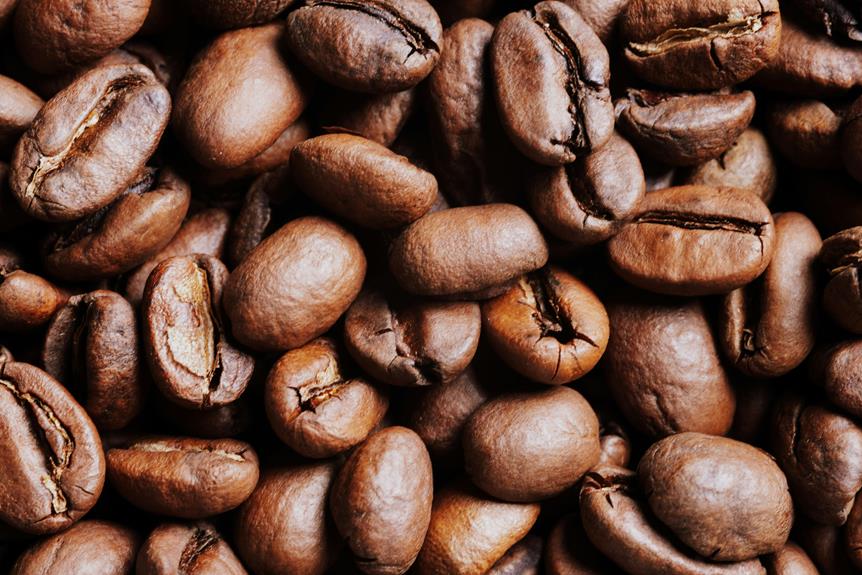Have you ever wondered whether your stash of Aerogarden seeds might just be ticking time bombs of viability? You're not alone in pondering their shelf life. Properly storing your seeds can greatly impact their longevity, with factors such as temperature, moisture, and light playing pivotal roles. If you've noticed any signs of aging, like discoloration or mold, it might be time to reevaluate your storage strategy. But how can you be sure you're doing everything possible to preserve their potency? Let's explore some key considerations that could enhance your Aerogarden's performance and possibly save your future harvests.
Key Takeaways
- Aerogarden seeds can expire and lose viability if stored improperly.
- Freshness is crucial; newer seeds typically have higher germination rates.
- Proper storage in cool, dry conditions extends seed lifespan.
- Indicators of expiration include discoloration, mold growth, and hardened texture.
- Storing seeds in an airtight container with a desiccant helps maintain their viability.
Understanding Aerogarden Seed Pods
Aerogarden's seed pods let you grow fresh herbs and vegetables right in your kitchen. You're in charge of your own mini garden, where you can cultivate a variety of plants regardless of the season. With these seed pods, you don't need to worry about external factors like weather or soil quality, which often complicate traditional gardening. Instead, you have the power to manage every aspect of the environment from the comfort of your home.
The pods themselves are a marvel of convenience and efficiency. Each consists of a seed embedded in a special growth medium, a spongy material that guarantees your seeds have the ideal moisture and air combination to encourage germination. You simply insert the pod into your Aerogarden device, add water and nutrients, and set the appropriate light cycle. It's a streamlined process that minimizes hassle and maximizes control.
Factors Affecting Seed Viability
Seed viability often depends on storage conditions, so you'll need to make sure they're kept in a cool, dry place. Beyond this essential aspect, several other factors greatly influence the longevity and effectiveness of your Aerogarden seeds.
Firstly, the age of the seeds plays an important role. Typically, fresher seeds possess higher germination rates. As seeds age, their vitality naturally declines, reducing the likelihood of successful sprouting. You're in charge of monitoring their age to maximize your garden's yield.
The genetic quality of the seeds also impacts their viability. High-quality seeds, bred for resilience and robust growth, are more likely to thrive. You can control this factor by choosing seeds from reputable suppliers who focus on genetic quality and offer detailed information about the seed's origin and breeding history.
Environmental factors such as humidity and temperature fluctuations can also affect seed viability. Although detailed storage tips are for another discussion, be aware that consistent environmental conditions are key to maintaining seed vitality. Fluctuations can lead to reduced germination rates, so it's in your best interest to manage these conditions meticulously.
Empower yourself by understanding these variables and taking proactive steps to manage them, ensuring that your Aerogarden thrives.
How to Store Aerogarden Seeds
To maintain the viability of your Aerogarden seeds, store them in a cool, dry place away from direct sunlight. This simple step guarantees that the seeds don't lose their germination capability due to environmental factors. You have the power to extend their shelf life greatly by choosing the right storage conditions.
Consider using an airtight container for storage. This approach minimizes exposure to moisture and air, two critical factors that can degrade seeds over time. You might also want to include silica gel packets in the container to absorb any residual moisture. This extra step helps in preserving the seeds' quality for a longer period.
Temperature stability is key. Ideally, you should keep the seeds in a spot where the temperature remains consistently cool. Fluctuations in temperature can trigger the seeds to use up stored energy, which reduces their shelf life. A basement or a closet in an air-conditioned room can be perfect for this purpose.
Signs of Expired Seed Pods
You can identify expired Aerogarden seed pods by noting changes in their appearance and texture. It's critical to recognize these signs early to manage your planting strategy effectively and avoid wasting time on pods that won't yield results.
Keep in mind, the viability of the seeds inside the pods diminishes over time, especially if they're not stored properly.
Here are the key indicators that your Aerogarden seed pods might be past their prime:
- Discoloration: Healthy seed pods typically have a uniform color. If you notice any unusual darkening or light spots, this could indicate that the seeds inside are no longer viable.
- Mold Growth: Any signs of fuzzy white, green, or black growths on the pods suggest fungal contamination, which can occur in expired or improperly stored pods.
- Hardened Texture: Seed pods should feel slightly spongy and moist. If they've hardened, it's likely that they've lost their moisture content and the seeds inside may not germinate.
Tips to Extend Seed Longevity
While recognizing expired Aerogarden seed pods is important, knowing how to preserve their freshness can save you time and improve your garden's output. To extend the lifespan of your seeds, you'll need to focus on proper storage conditions.
Store your seed pods in a cool, dry place. Heat and moisture are the enemies here; they can trigger germination or cause mold. Ideally, you should keep them in an environment that's consistently below 70°F (21°C) and at a low humidity level.
You should also consider sealing your seed pods in an airtight container. This prevents air and moisture from seeping in and spoiling the seeds. A vacuum-sealed bag is a great option, but even a tightly closed jar can do the trick. If possible, add a desiccant packet to absorb any accidental moisture that might've been trapped inside during sealing.





Konnichiwa! (Hello!) I'm Pat Tokuyama, a Japanese tofu cookbook author, who travels for music, food, and adventure. If you like Japanese tea, checkout some of the newestorganic japanese tea, matcha bowls and noren and more!
** Curious about the Plant Based Japanese Cooking Club? ** Learn more here!